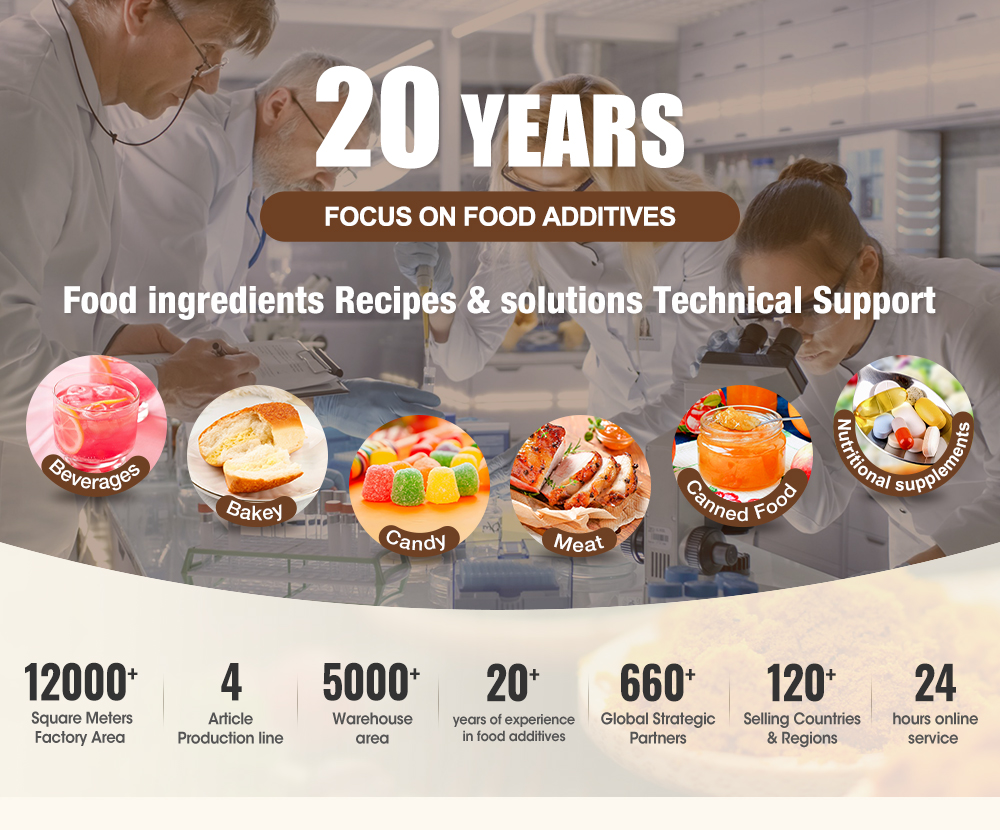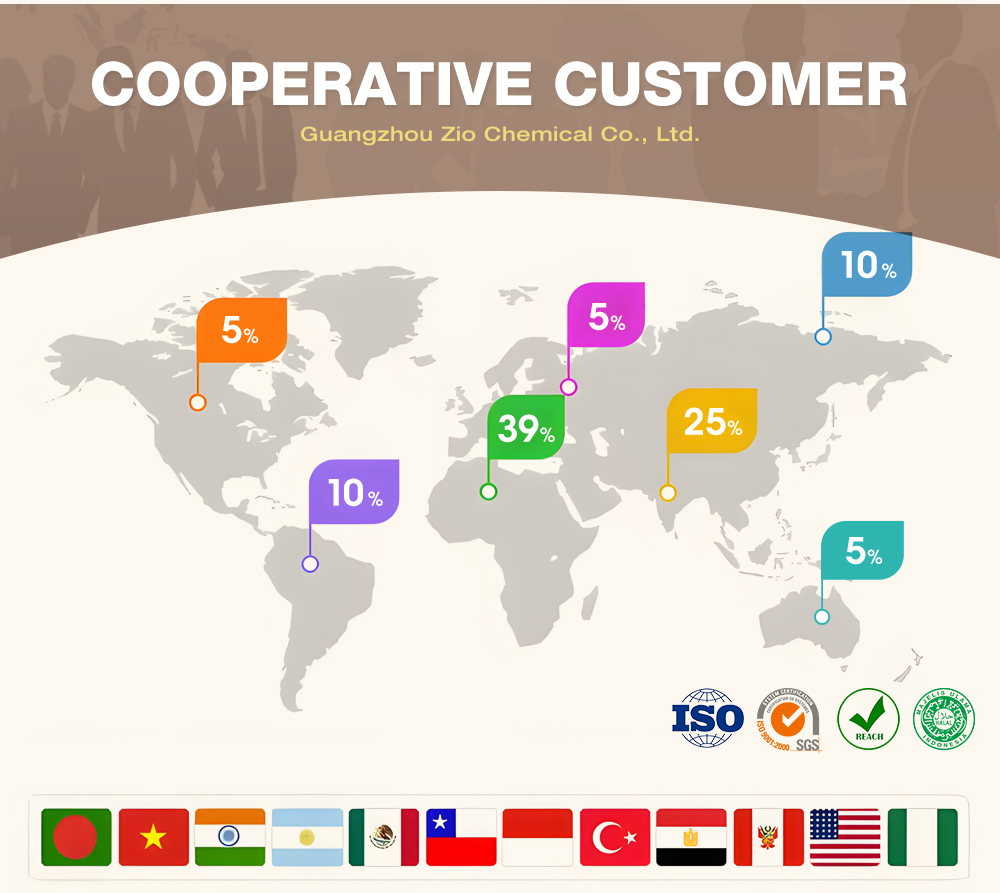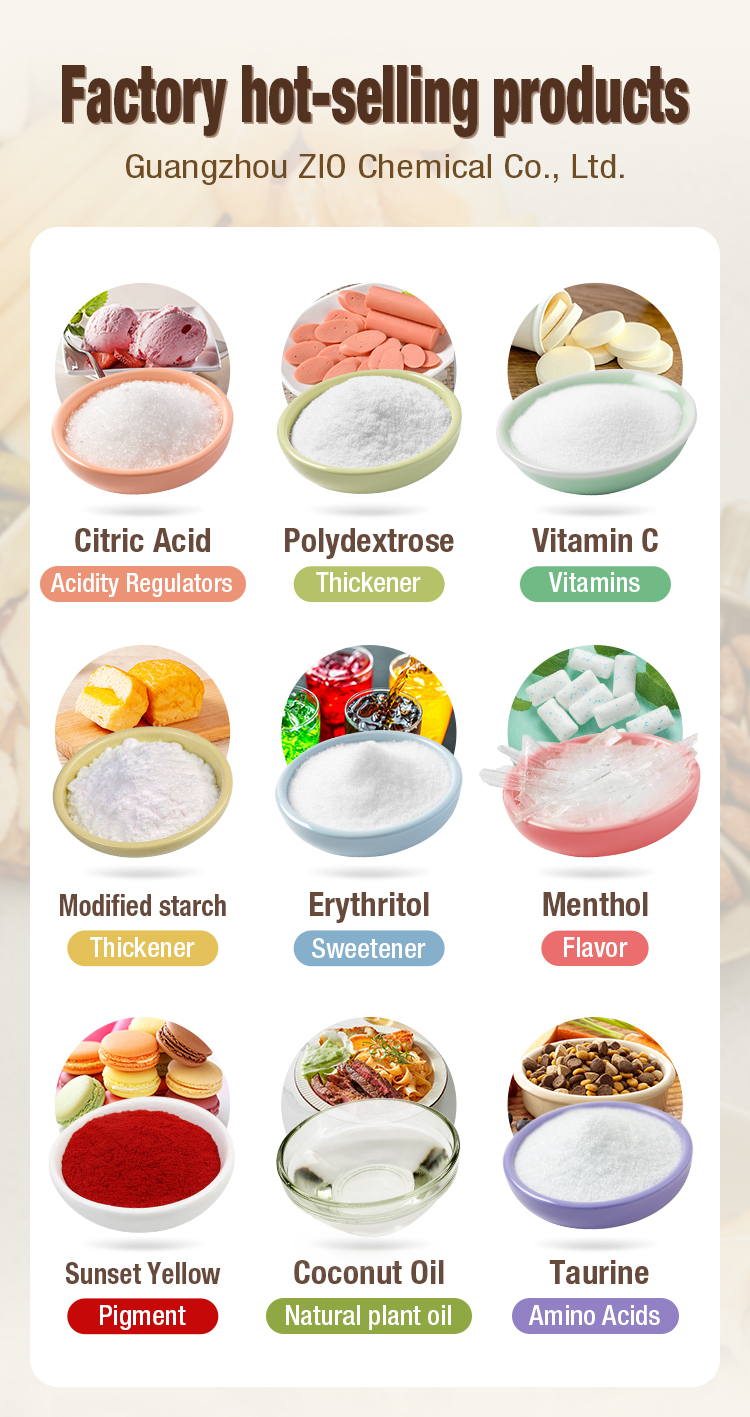| Availability: | |
|---|---|
| Quantity: | |











Erythritol is a naturally occurring sugar alcohol derived from fermented glucose. Known for its low-calorie content (only 0.24 calories per gram), it provides sweetness without the calories of traditional sugar. This makes it an excellent choice for health-conscious consumers looking to reduce sugar intake without sacrificing flavor. Erythritol is about 70% as sweet as sucrose, making it ideal for a variety of sugar-free and low-calorie products, including candy, baked goods, and beverages. It is also non-cariogenic, meaning it does not contribute to tooth decay, making it suitable for dental-friendly products.
Erythritol offers a sweet taste similar to sugar, but with nearly zero calories, making it a perfect option for those aiming to reduce their calorie intake while still enjoying sweet flavors. Unlike sugar, it does not spike blood sugar levels, making it a safe and effective option for individuals with diabetes or those following low-carb diets.
Compared to other sugar alcohols, Erythritol is absorbed in the small intestine and is excreted unchanged through the urine, leading to fewer gastrointestinal issues such as bloating or gas. This makes erythritol easier on the digestive system and more digestively friendly than other sugar alcohols.
One of the key advantages of Erythritol is its non-cariogenic nature, meaning it does not contribute to tooth decay. This makes it an ideal sweetener for oral health-conscious products like sugar-free gum, mints, and other dental-friendly confectionery items.
Erythritol is commonly found in sugar-free and low-calorie products such as candies, chocolates, baked goods, and beverages. It is often used in combination with other sweeteners to enhance flavor and sweetness while keeping the calorie content low. This makes it an ideal choice for manufacturers looking to produce delicious sugar-free treats that appeal to health-conscious consumers.
In the pharmaceutical industry, Erythritol is included in the formulation of sugar-free products such as cough syrups, chewable tablets, and lozenges. It provides sweetness without the calories associated with traditional sugar, making it suitable for diabetic-friendly and sugar-restricted medicinal products. Its digestive tolerance and non-cariogenic properties further enhance its appeal for pharmaceutical applications.
Due to its non-cariogenic properties, Erythritol is also used in certain dental care products, such as toothpaste and mouthwash, to promote oral health while still providing sweetness. Its gentle effect on the digestive system makes it a good choice for products that benefit from its moisture-retaining and stabilizing properties. Erythritol is also used in some personal care products, offering a natural, safe, and sweetening alternative to other ingredients.

Erythritol is a naturally occurring sugar alcohol derived from fermented glucose. Known for its low-calorie content (only 0.24 calories per gram), it provides sweetness without the calories of traditional sugar. This makes it an excellent choice for health-conscious consumers looking to reduce sugar intake without sacrificing flavor. Erythritol is about 70% as sweet as sucrose, making it ideal for a variety of sugar-free and low-calorie products, including candy, baked goods, and beverages. It is also non-cariogenic, meaning it does not contribute to tooth decay, making it suitable for dental-friendly products.
Erythritol offers a sweet taste similar to sugar, but with nearly zero calories, making it a perfect option for those aiming to reduce their calorie intake while still enjoying sweet flavors. Unlike sugar, it does not spike blood sugar levels, making it a safe and effective option for individuals with diabetes or those following low-carb diets.
Compared to other sugar alcohols, Erythritol is absorbed in the small intestine and is excreted unchanged through the urine, leading to fewer gastrointestinal issues such as bloating or gas. This makes erythritol easier on the digestive system and more digestively friendly than other sugar alcohols.
One of the key advantages of Erythritol is its non-cariogenic nature, meaning it does not contribute to tooth decay. This makes it an ideal sweetener for oral health-conscious products like sugar-free gum, mints, and other dental-friendly confectionery items.
Erythritol is commonly found in sugar-free and low-calorie products such as candies, chocolates, baked goods, and beverages. It is often used in combination with other sweeteners to enhance flavor and sweetness while keeping the calorie content low. This makes it an ideal choice for manufacturers looking to produce delicious sugar-free treats that appeal to health-conscious consumers.
In the pharmaceutical industry, Erythritol is included in the formulation of sugar-free products such as cough syrups, chewable tablets, and lozenges. It provides sweetness without the calories associated with traditional sugar, making it suitable for diabetic-friendly and sugar-restricted medicinal products. Its digestive tolerance and non-cariogenic properties further enhance its appeal for pharmaceutical applications.
Due to its non-cariogenic properties, Erythritol is also used in certain dental care products, such as toothpaste and mouthwash, to promote oral health while still providing sweetness. Its gentle effect on the digestive system makes it a good choice for products that benefit from its moisture-retaining and stabilizing properties. Erythritol is also used in some personal care products, offering a natural, safe, and sweetening alternative to other ingredients.

| Attribute | Detail |
|---|---|
| Name | Erythritol |
| Ingredient | Erythritol (Sugar Alcohol) |
| Specification | White crystalline powder, food-grade |
| Place Of Production | Guangdong, China |
| Shelf Life | 2 years |
| Storage Conditions | Store in a cool, dry place, away from direct sunlight and moisture. Use an airtight container to prevent clumping. |

| Attribute | Detail |
|---|---|
| Name | Erythritol |
| Ingredient | Erythritol (Sugar Alcohol) |
| Specification | White crystalline powder, food-grade |
| Place Of Production | Guangdong, China |
| Shelf Life | 2 years |
| Storage Conditions | Store in a cool, dry place, away from direct sunlight and moisture. Use an airtight container to prevent clumping. |

Erythritol is highly versatile, making it suitable for use in a wide range of food products, including baked goods, sugar-free confections, and beverages. Its heat stability ensures that it can be used in baking without losing its sweetening power, providing manufacturers with flexibility in product formulations.
As a humectant, Erythritol helps to retain moisture in food products, which improves their shelf life and keeps them fresh for longer periods. This makes it particularly useful for products like sugar-free snacks and confectionery that need to maintain their freshness over extended storage periods.
Because Erythritol has a glycemic index of zero, it does not affect blood sugar levels, making it safe for individuals with diabetes or those following low-carb or ketogenic diets. This makes it an excellent sweetener for diabetic-friendly foods and low-carb snack options.












Erythritol is highly versatile, making it suitable for use in a wide range of food products, including baked goods, sugar-free confections, and beverages. Its heat stability ensures that it can be used in baking without losing its sweetening power, providing manufacturers with flexibility in product formulations.
As a humectant, Erythritol helps to retain moisture in food products, which improves their shelf life and keeps them fresh for longer periods. This makes it particularly useful for products like sugar-free snacks and confectionery that need to maintain their freshness over extended storage periods.
Because Erythritol has a glycemic index of zero, it does not affect blood sugar levels, making it safe for individuals with diabetes or those following low-carb or ketogenic diets. This makes it an excellent sweetener for diabetic-friendly foods and low-carb snack options.













